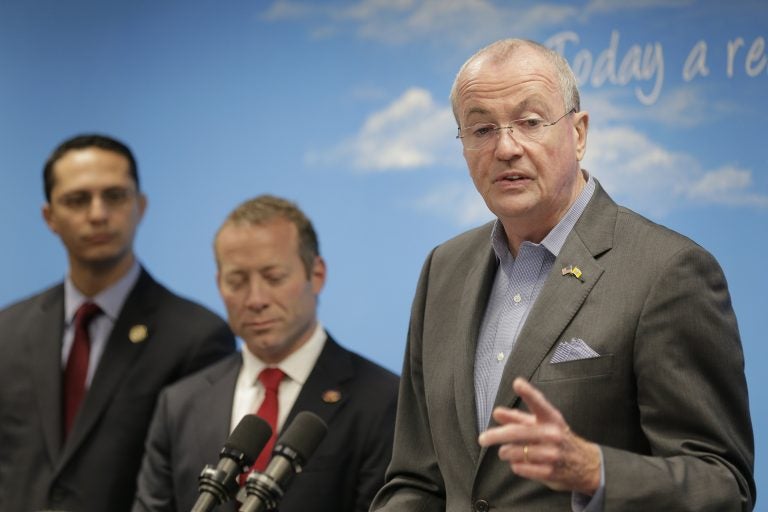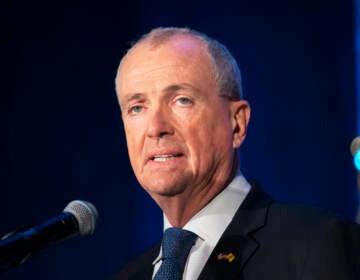N.J. to offer schools $100 million for lead remediation, require more frequent tests
New Jersey will begin borrowing $100 million to pay for lead remediation projects in schools across the state and require educational facilities test for lead contamination.

New Jersey Governor Phil Murphy speaks to reporters and others at an elementary school in Bergenfield, N.J., Monday, Oct. 7, 2019. Murphy and other local politicians announced efforts to deal with lead contamination in drinking water, specifically in schools. (Seth Wenig/AP Photo)
New Jersey will begin borrowing $100 million to pay for lead remediation projects in schools across the state and require educational facilities to test for lead contamination more often.
The efforts are Gov. Phil Murphy’s latest attempts to deal with growing public concern about lead contamination in homes and schools across the state.
“Lead contamination is not a Newark problem or an urban problem,” Murphy said at a Monday press conference in Bergenfield. “It’s a problem that has been building in communities up and down our state and, indeed, across the country.”
Although tests showed that lead levels in Newark’s water system were lower than some had initially feared, the episode got lawmakers and the public talking about whether the state was doing enough to prevent lead contamination.
Murphy said the state would start requiring schools to test for lead contamination every three years instead of the current standard of every six years, and the state Department of Education would create and online portal with lead testing results from schools across the state.
The Democrat also announced that the state would begin borrowing $100 million approved by voters last year to help schools pay for urgent projects to address lead contamination.
Some critics including state Sen. Pres. Steve Sweeney, D-Gloucester, said the administration had not acted quickly enough to obtain the funding after voters approved the bond act last November, but Murphy said his staff worked as fast as they could.
“Are folks frustrated it’s taken this long? Count me on that list,” Murphy said. “But that’s not for a lack of a lot of work. I mean, literally moving heaven and Earth. This is really complicated stuff.”
Murphy said the money would likely be available for schools in the spring.
WHYY is your source for fact-based, in-depth journalism and information. As a nonprofit organization, we rely on financial support from readers like you. Please give today.




